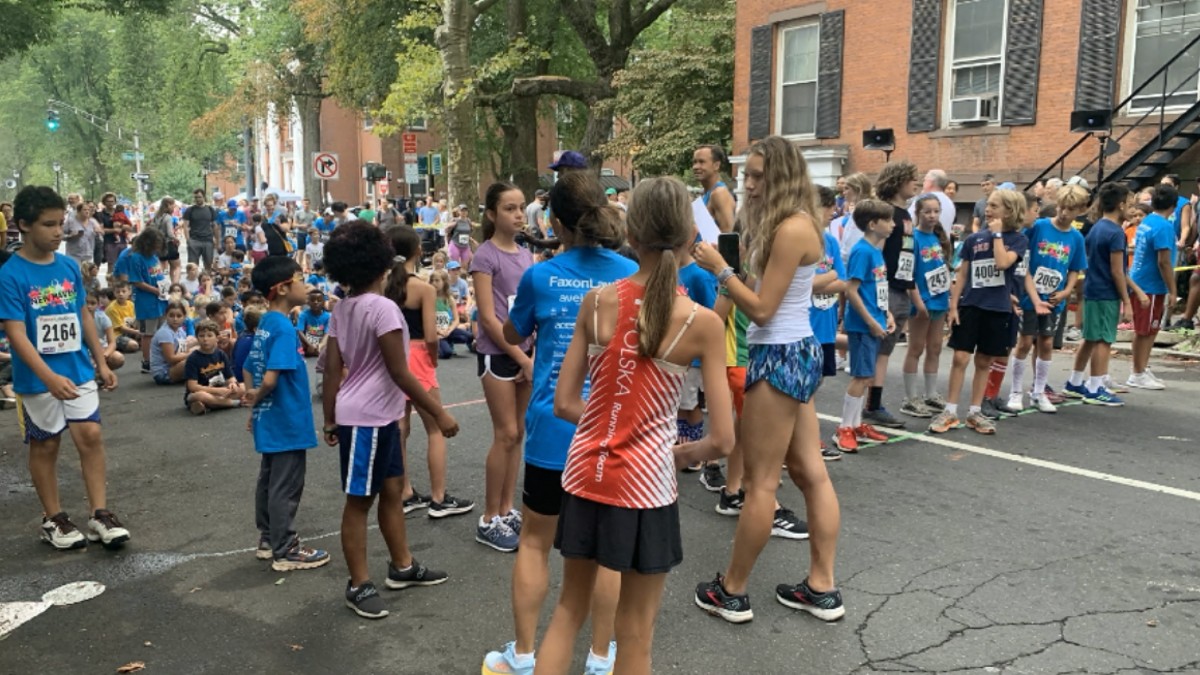Local police departments are seeing a rise in mental health crisis calls and both Waterbury and South Windsor say that it's partially driven by the ongoing pandemic.
They are meeting the need in a new way: not just with intervention, but also with counseling and support. Both departments have Crisis Intervention Teams.
When an emergency call comes in, officers peel out. At the Waterbury police department, two crisis intervention counselors also head out the door. They work specifically with kids and are part of the Crisis Intervention Team-Youth, known as CIT-Youth.
By day, Xylia Lopez and Deisha Barriera can be found in their counselors’ offices, working with students in public schools. After school hours, they are by the side of police officers, responding to calls that involve children.
Get top local stories in Connecticut delivered to you every morning. Sign up for NBC Connecticut's News Headlines newsletter.
“When they see the police officers in uniform, they may get a little intimidated by, you know, we just come regular,” Barriera said. “We have a lot of training and education in the social work field, mental health field as well. We offer services that the police officers may not always be aware of.”
On one call on a Thursday just before 5 p.m., the CIT-Youth team helps de-escalate a situation by speaking with a mom and daughter.
“The mom had an11-year-old daughter. She has some behavior issues. We got that she was very upset,” Barriera said.
Local
“Mom requested the services of the police department with CIT-Youth to come and help de-escalate some behavioral issues,” Lopez added.
The licensed behavioral specialists ask kids questions.
“Is there anyone that you can talk to? Do you have any friends? What are some coping skills that can help you?” Lopez said, providing some examples of what she would say during a conversation.
They address the children in English or Spanish. Both Lopez and Barriera are bilingual.
The purpose is to connect with kids, then give them ongoing support after police leave.
“We'll collaborate with mom and the school just to make sure that the family is supported and have services and, you know, continue to receive support after this call,” Lopez said.
“Those services include counseling services, as well as after school programs,” Barriera said.
CIT-Youth was developed in close partnership with Waterbury Public Schools and the Department of Children and Families. Waterbury Police Chief Fernando Spagnolo said there was a need when police noted a rise in calls involving children in crisis aligned with the onset of COVID-19.
"There's still a lot of stressors on families and children because of the pandemic,” Spagnolo said. “And we've seen some detrimental outcomes, some deadly outcomes, frankly. We've seen kids involved in shootings, we see kids involved in auto theft, kids responsible for serious assaults, kids in possession of weapons, stolen weapons and guns. And a small portion of them yet, nevertheless, a tremendous amount of violence occurring."
The program not only helps individual kids going through a crisis, it also aims to curb overall youth crime in Waterbury. Since CIT-Youth launched in November, the counselors have responded to 77 cases.
"There were a tremendous amount of success stories where we've seen kids that were on the brink of being sent into juvenile detention sent back home, their families have been provided assistance as well,” Spagnolo said. “I think the most important thing that these crisis intervention workers do is the follow up, right. So they don't leave this family and this kid hanging after the warm handoff, they provide them some triage-type service."
Forty miles northeast, the South Windsor Police Department is also seeing an uptick in crisis calls, which they believe are driven by the pandemic.
“I think the COVID and whatever the residual effects of the pandemic, all that can kind of compound and create kind of a perfect storm of what this issue is,” Sgt. Mark Cleverdon said.
While South Windsor Police consistently get calls related to mental health, they saw a surge around the new year.
"We usually see about 15 calls for service with people related to welfare checks, emotionally disturbed persons. This December, for example, we saw almost double that,” Cleverdon said.
The department received 21 mental health-related calls in September, 18 in October, 15 in November, and 28 in January.
The data has not yet been analyzed for January, but Cleverdon said before full analysis, the breakdown is that the department responded to 40 welfare checks, 13 emotionally disturbed person calls, and four youth problems.
In January, the South Windsor Police Department posted on Facebook about the surge, writing: “We want to remind you that we are here for you.”
That is where Crisis Intervention Training for officers comes in. Of the department’s 43 officers, 39 have completed the five-day course, including Cleverdon.
"I think it gives our officers perspective,” he said. “It allows them to kind of look at a situation maybe not necessarily from their eyes, or from their standpoint, but from what the other person is going through."
Sign up for our Breaking newsletter to get the most urgent news stories in your inbox.
All officers will complete training by the end of the year, learning how to provide resources, like connecting people to the state-based mental health provider, CHR. A mobile CHR unit also periodically responds to calls alongside police.
At the end of the day, Cleverdon said it's about stepping beyond the role of officer and lending a sympathetic ear.
"I think that means a lot when you're talking about someone who is genuinely in a bad place, if our officers are able to speak with them,” he said. “We are now problem-solvers. We have an obligation to make sure that when we show up there, not only do we figure out what's happening right at that moment, but how can we help that person for the future?"



